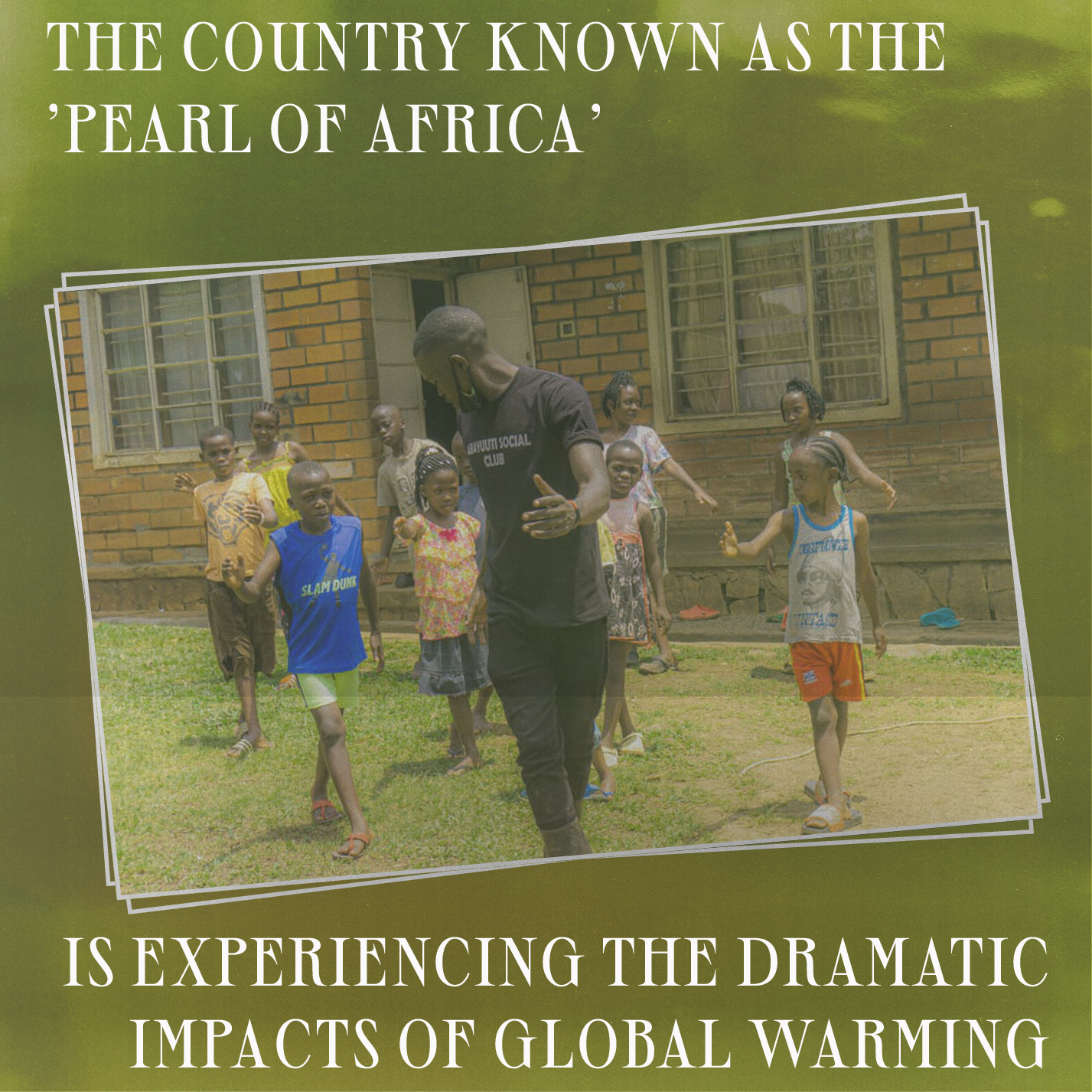Uganda, The Pearl of Africa
Uganda is one of the African countries at the forefront of the climate crisis. Crispus, medical clinical officer and activist, talks about his beloved country and his fight for social and climate justice…
“This was the most beautiful country you’d have ever seen,” says Crispus, talking about Uganda, his home country. He adds:
“The beauty of Uganda is fading day by day because of climate change.”
Crispus is the founder of a youth-led organisation promoting climate education in Kampala, Uganda, in Eastern Africa, and a medical clinical officer student. He says the goal is to “help the society understand how we could live in a friendly way with the environment”, as well as managing their waste, especially plastic waste.
“Disposal of waste has always been an issue, as well as plastic pollution. There is litter everywhere. Stagnation of water and flooding are things that can bring a lot of issues.”
But plastic pollution is not the only environmental catastrophe Uganda is subjected to.
The country, known as ‘the Pearl of Africa’, is experiencing the dramatic impacts of global warming at high speed. Floods, prolonged droughts, and landslides have been regular occurrences for years, endangering people and slowing down the economic growth of this already low-income country.
Flooding causes water contamination, bringing disease, because bacteria present in one zone travel with the flood. Landslides destroy trees, in particular coffee trees, and damages housings. Entire villages inhabitants have lost their homes these past years due to climate disruption. The coffee industry is the main source of income for the country in terms of exports. Because of the disruption in climate patterns, the dry season is becoming longer, and the wet season is too short for the coffee beans to grow properly and be valuable on the international market.
Floods, and landslides, are perhaps the main issue the country is facing this summer. Crispus says these events are happening more and more often.
Kasese, in the south-east region, for instance, has been particularly affected by flooding for over 10 years.
“Climate change has caused such damage.”
“These people [the inhabitants], all the time, are displaced. They are affected every single year by flooding, and new people are now the victims of floods too.”
Last year, in Bududa, in the Eastern Region of Uganda, important landslides occurred. Crispus explains that Bududa is located on a steep slope, Mount Elgon, and that the communities have been greatly affected by landslides for “eight or 10 years.” Crispus says that many of Bududa’s inhabitants have lost their homes if they have not their lives.
“I have witnessed climate change, and I know what it means. I’ve talked with people who have been affected, some had been my friends, or families of friends. Climate change has caused such damage.”
Landslides are one of the more important issues climate disruption has made worse. The rain seasons and dry seasons are things of the past, and rains are heavier than normal. When it rains in Kampala now, Crispus says, everyone is worried. I ask if it is because now rain equals floods, and he agrees.
“Land sliding is now everywhere in Uganda. Here, in Kampala, every time it rains, the whole place is flooding.”
He goes on and talks about the seasons:
“Rain season used to be between September/October and lasted until January, then we had a ‘dry season’ up to around April/May with some rains, then another dry season for the remaining months. Now it is hard to tell when it is going or not going to rain.”
He says that the season pattern have completely changed “to an extend that we never know now, if it is going to be a wet month, or a dry month.” He adds that agriculture is now based on probabilities more than knowledge, resulting in a high number of loss of crops.
“If we don’t come up with strategies to mitigate it, then what then? We’re finished. Because natural resources are our livelihood.”
With his association, Abayuuti, Crispus’ aim is to promote climate change mitigation through education. He says that in addition to teaching farmers about better practices and his community about waste management and the effects of climate change, Abayuuti also teaches children in schools.
“Abayuuti community group is a youth-led organisation of climate and environmental justice activists that are creating awareness on environment and climate justice, and environment and climate justice practices,” says Crispus. He explains that their goal is also to teach eco-friendly practices activities through Project Big Picture.
“We would like them to have environmentally conscious ‘minds.’”
Some of those children, he says, are traumatized by the effects global warming already had on their lives.
“These kids get to know the problems their parents are facing when they are very young” says the young activist about the children who, because of landslides provoked by climate disruption, became homeless. “These are people [the families] who have to rely on governments and NGO that come to help for food. You can see a four-year-old kid, and you can see he or she knows the parents might not get food today. It is a traumatizing thing for the children but also, I think, for the parents. No one would want kids not to go to school, or even be homeless when these families had homes, to be starving when these families had food...”
“Uganda depends on two things that are entirely ‘nature’. That is agriculture and recently tourism. If we don’t come up with strategies to mitigate it, then what then? We’re finished. Because natural resources are our livelihood.”
He concludes the interview by saying:
“Everyone can see that something is happening, that it is unusual, and that it is very sad.”
credits
words — charlotte lavin
design — sade popoola



